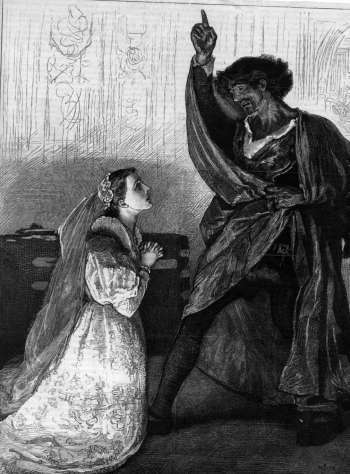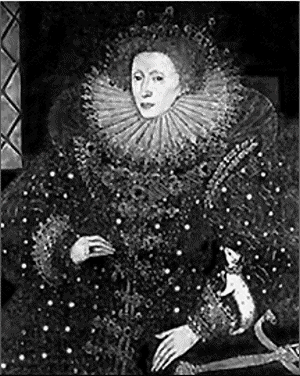
january 2005

SHAKESPEARE AND ISLAM
The British theatre world
is showing an increased interest in the Middle East and
the Islamic cultural scene. The Arab-Israeli Cookbook at
the Gate Theatre or the performance of Women of War by
the Iraqi author Jawad al-Assadi are just two examples of
this trend.
Surprisingly, London's Globe Theatre was the  very first
English theatre to tackle the subject over an extended
period. This month will see the 400th anniversary of the
first performance of Othello, the Moor of Venice for
which there is written evidence.
very first
English theatre to tackle the subject over an extended
period. This month will see the 400th anniversary of the
first performance of Othello, the Moor of Venice for
which there is written evidence.
In Shakespeare's time, as today, the term
"Moor" was used to describe a member of a
Muslim people that inhabited North Africa.
Othello was probably a Moroccan
Patrick Spottiswoode, head of the Globe Education
Department, explains that everything points to the fact
that Shakespeare's Othello was a Moroccan.
He was probably inspired to write the play by the
Moroccan ambassador's spectacular visit to England in the
year 1600: "From the Ottoman invasion of Cyprus to
Desdemona's fateful handkerchief, which was spun in
Egypt, the play is peppered with references to
Islam."
And so the Education Department decided to use the
anniversary to make contact with the Islamic Society of
Britain and other organisations to put together a
"Shakespeare and Islam" season.
The aim is to explore Elizabethan attitudes to the Muslim
world; part of the Globe's remit is to work towards a
better contemporary understanding of Shakespeare and to
examine the social and political context in which his
plays were written.
But the Globe also saw the opportunity of using the Bard,
the quintessential vehicle of English culture, to pave
the way for encounters with Islamic culture in modern
Britain.
Othello is right at the heart of this extensive cycle of
events, which includes Globe youth workshops in English
and Arabic and a reading of the rarely performed first
printed version of the play dating from 1622.
Seven other plays from the Shakespeare era, which are
either set in Islamic countries or in which Islamic
figures play an important role, will be read, book in
hand, by actors including forgotten masterpieces like the
17th Century pieces Emperor of the East by Philip
Massinger and The Battle of Alcazar by George Peele.
At the time, the Ottoman Empire still constituted a
latent threat: in 1570, the Turks conquered Cyprus after
a bloody invasion. At the same time, Morocco, which was
not under the yoke of Constantinople, was an important
ally of England in its animosity towards Catholic Spain.
Elizabeth and the Moroccan King even  hatched
plans to colonise America together. According to sources,
Shakespeare himself actually read Richard Knolle's book
General History of the Turks.
hatched
plans to colonise America together. According to sources,
Shakespeare himself actually read Richard Knolle's book
General History of the Turks.
He refers to Islam at least 141 times in 21 different
plays: this includes references to the prophet
"Mahomet", Morocco, Constantinople, Turks,
Ottomans, Saracens, Sultans, and Moors.